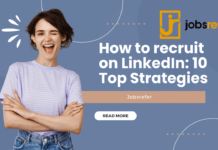Interviews are always nerve-wrecking. Your resume and cover letter made it through the door, and now you have to exercise your personality to help win your job! Practice makes perfect, so I curated a list of potential questions the interviewer might ask you and how you can tackle them with ease. This list is exhaustive, and I modified it with reference to materials my college’s business department given me.

What are your career goals for the next 1-3 years/5-10 years? Or Tell me more about yourself.
This is the most frequently asked question in interviews. Have a short statement prepared that describes a little about your past, a lot about your present.. Be sure that it does not sound rehearsed and that you can fully engage the interviewers by sounding excited about the opportunity. Talk about things you have done that relate to the position you are interviewing for and show strategy in your thinking that led you to this interview. You could also talk about your hobbies, passions and what you do in your free time. Start with the item farthest back, work up to the present and touch on the future. Let the recruiter know how this position ties into the career map you have planned. Limit your answer to relevance with the interview.
Why should we hire you?/ What experience do you have in this field?/ Give me an example from your experience or education that shows your readiness for this role.
Speak about specifics that relate to the position for which you are applying. If you do not have specific experience, get as close as you can. It is crucial that you prepare by unpacking your brain, and know how to tie your experiences/skills to the position description. Give them your best pitch and smile!
How did you choose this line of work?
Highlight the skills they stated they are looking for when they have put up their employment terms. Often, they are looking for people who are strategic and apply critical thinking to decisions. Show passion for the field and also be confident and show your skills.
(If you are in the midst of a career switch) Why did you leave your last job? or Why do you want to leave your job? or What did you enjoy/not enjoy about your last job?
Stay positive regardless of the circumstances. Don’t refer to a major problem with management and never speak ill of people or the company. If you do, you will be sullied. Keep smiling and talk about leaving for a hopeful, forward-looking reason (i.e. chance to make an impact, use skills, etc.).
What do you know about our firm? or Why do you want to work for us? Or Why do you want the job?
These questions are the primary reason to do research on the organization before the interview. Find out where they have been and where they are going. What are the current issues? Who are the major players? Can you get behind their mission? Review their “About Us” webpages and google current events where they were involved. This takes thought and should be based on the research you have done on the organization as a whole plus a mention of the specific position. Know that job description very well! Sincerity is extremely important. Relate response to long-term career goals. A flat answer here may end the interview, so be prepared.
Provide an example of your ability to think quickly and clearly on your feet.
The important skills will mostly require timely, analytical, and creative people. Have a story ready to address this question. Companies are looking for innovative thinkers who do not need to be pampered and are up to the challenges of business.
What do co-workers/former employers say about you?
Ask former colleagues and professional friends for their opinions! Be prepared with a quote or two. Either a specific statement or a paraphrase will work. “James Smith, a colleague at Jan Company, always said I was the hardest worker he’d ever known”.
Tell me about a time when you helped get a team focused and led them to success.
Do not brag, just say it in a matter-of-fact tone. This is a key point and provide a thorough reply. Be sure to have examples ready: specific stories that show you often perform for the good of the team rather than for personal success are good evidence of your team attitude.
Are you applying for other jobs?
Be honest but do not spend a lot of time in this area. Keep the focus on this job and what you can do for this organization. Anything else is a distraction.
What is your greatest strength? Follow Up: Tell me about a time when this professional strength made the difference between success and failure.
Numerous answers are good, just stay optimistic and truthful. A few good examples: ability to prioritize, work under pressure, solve problems or focus on projects, perhaps professional expertise, leadership skills, positive attitude, reporting skills… but be able to prove your reply with a decent story.
What kind of person would you refuse to work with?/What type of person do you prefer not to work with?”
Do not dwell on trivial things. It should take disloyalty to the organization, violence, or criminal behaviour to get you to refuse to work with a colleague. Minor objections may label you as a whiner. If the version of this question is, “What type of person do you prefer not to work with?” don’t be trivial, try to overcompensate or be negative. Focus on discussing your ability to work well with just about anyone.
What kind of salary do you need?
It’s a loaded question and a thorny game that you will probably lose if you answer first. So, try not to answer it. Instead, consider discussing how the experience this opportunity offers is the main compensation you are seeking. You could try, “What is the pay range someone with my skill set and degree could expect for this position?” In some cases, the interviewer will tell you. If the interviewer presses, be sure you have done your research on appropriate salaries and quote a pay range that makes sense for your lifestyle, your experience, your location, and the position. Use salary.com, Glassdoor.com and Bureau of Labor Statistics to do your research.
Tell me about a time when you had an idea to improve a process.
They are looking to see that you can
- take enough ownership to even think about improvements
- think creatively and challenge norms
- present enhancements to others with emotionally intelligence
- consider risks of change.
Tell me about a problem you had with a supervisor.
Do not tear anyone up. Stay positive and either reply that you have not had any trouble with a supervisor if that’s the case, or provide a short story about how you constructively worked to solve the issue and how your relationship was strengthened as a result. Focus on the happy result!
What motivates you to do your best on the job? or What do you expect from your employer?
Add anything you deem fitting here, but avoid coming off as entitled or high maintenance. This is personal – be accurate and honest, yet relevant to the job – but examples for motivation are: Challenge, Achievement, Recognition, Positive Impact, Helping Others. For expectations, you can discuss motivation first and then add something like, “I expect that my employer will communicate her needs clearly so I can drive toward strong results.”
Do you have any blind spots or weaknesses?
This is a tricky question – Do not reveal personal areas of concern but focus on how you want to grow professionally. In discussing weakness, focus on the BUT, i.e. “In the past I have put a lot of pressure on myself, but I have been overcoming that as my skills sharpen and challenges lessen.”
Tell me about a time that you had to analyse several solutions to make a sound decision.
This question dives into the ability to create a framework for strategic thinking and proves you have a set process to make good decisions. Tell a story where the situation is not simple and you can give specifics on the pros and cons assessed, the sources of information tapped into, the info gathered, and insights made to come to a conclusion.
How do you stay organized?
You can even provide a story that speaks to how these qualities led to a success at some point in your life, career, or education. Attending to details, planning, organizing, and prioritizing work takes skill. Talk about how you manage your life or work using specific methods, as well as tools you use.
What questions do you have for me?
These questions should be informational in nature and allow you to understand the position and company better while reinforcing your interest and enthusiasm. Interviews should go both ways. Have about 5 good questions ready to ask so you can gather the information you need to make a well-informed decision.




